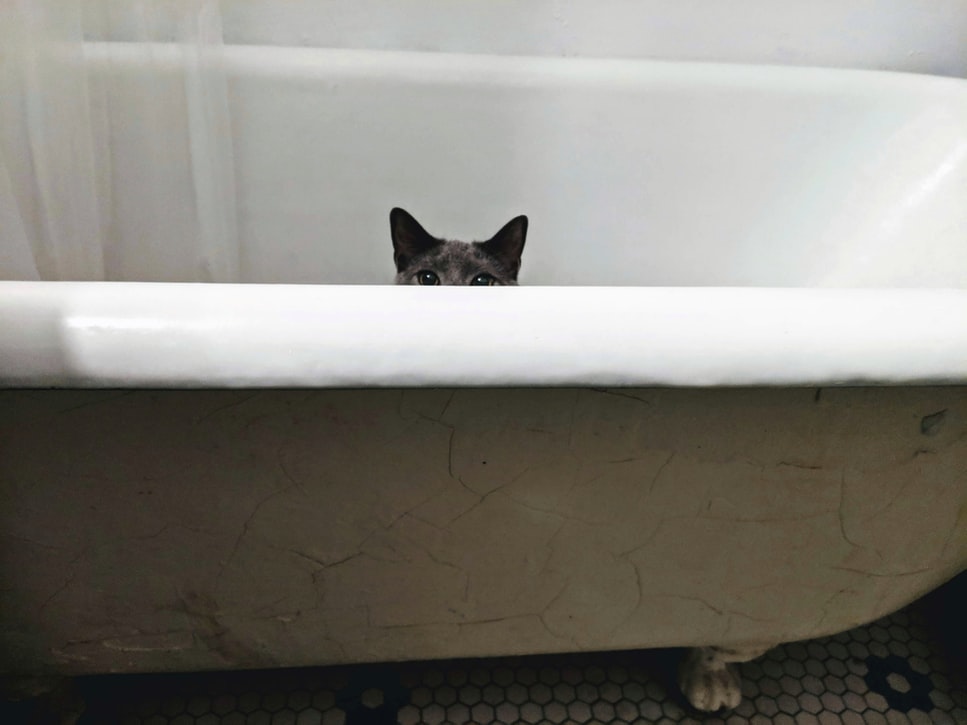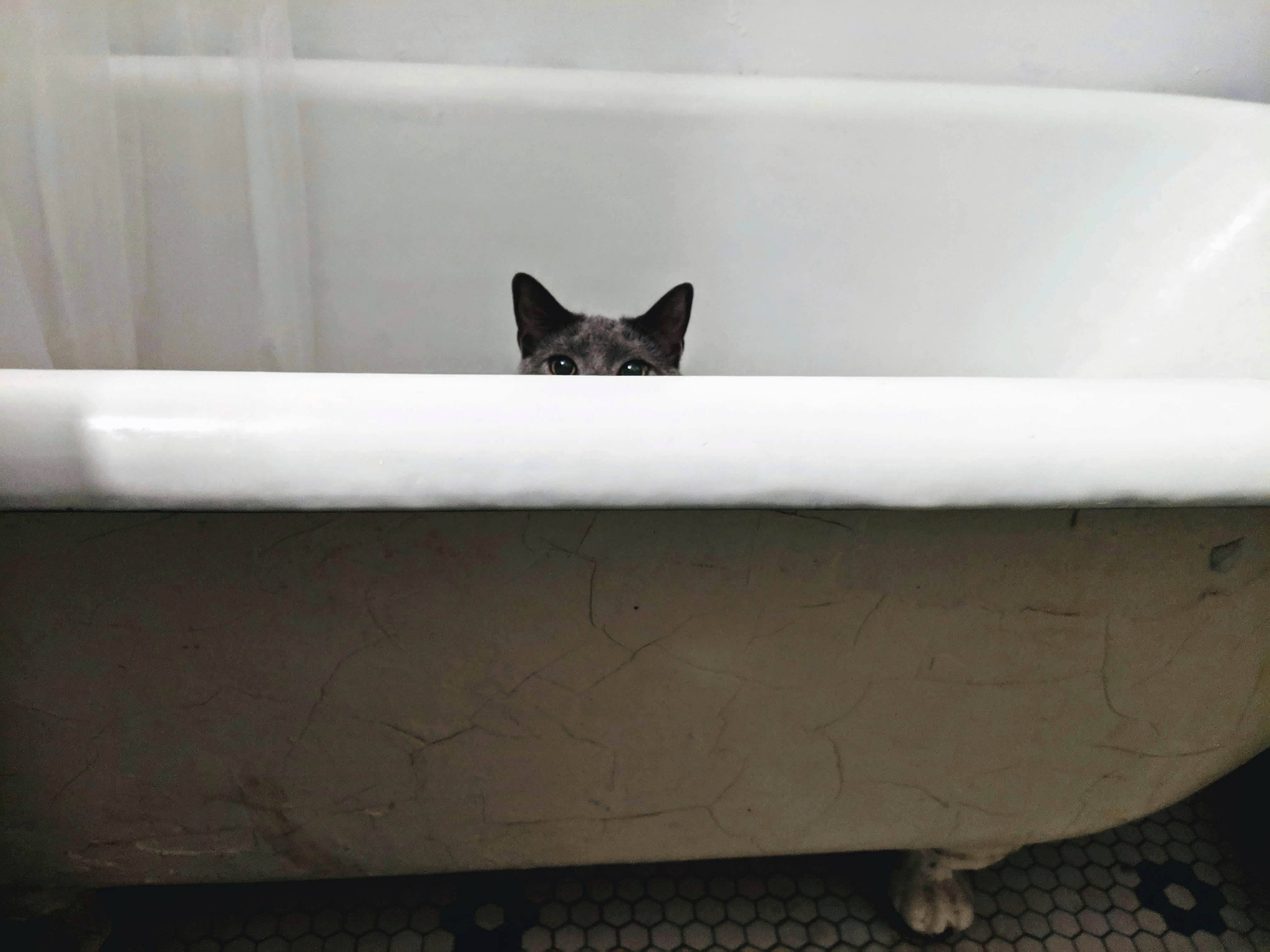For aspiring authors like myself, writing workshops are the Limbo to every manuscript’s descent into revision Hell—the first place where you can get unbiased criticism of your work from other human beings. They can be positive and illuminating, or they can be oppressive and discouraging, and the outcome depends entirely on what personalities are in your workshop. In this post, I’d like to talk about the sort of workshop personalities you should avoid. These are the people I’ve seen reappear time and time again in workshops, like a recurring cancer. If you don’t deal with these negative Nancies as soon as possible, they will surely wreck your group dynamic.
Workshops are a necessary evil in the development of the manuscript. I did quite a few as an undergraduate student at Stetson University, primarily in poetry, but I avoided workshops entirely in grad school, out of a naive intention to pursue only “practical” coursework—e.g., courses in copyediting, the business of publishing, publishing rights. As a result, I did not produce a lot of creative writing during that period. In my post-graduate years, however, I joined informal writing groups. Each of these writing groups came with its own etiquette, rules of procedure, and expectations of output. To this day, my writing groups have held me accountable, and if it weren’t for them, I would never have finished my first manuscript. So I present the below “personalities to avoid” with a great appreciation for what writing workshops can help you accomplish.
1. The Workshop Vampire

God help you if your workshop has one of these. This guy LOVES to do workshops because it means people have no choice but to listen to him ramble on for extended periods of time. He will suck the air out of the room and you will start to resent the workshop as a whole unless your moderator steps in. He will offer his criticism at every opportunity and let me tell you: his criticism is usually 99% crap because he’s not interested in improving the writer’s work, he’s interested in hearing himself talk. Whether or not this guy actually has good advice (very rare), he will dominate the conversation, forcing the workshop off track as he drags out every point with his two- to three-minute extended filibusters. (see also: The Filibustering Writer.)
2. The Defensive Writer
Most writers start off with enormous egos that are too big for their writer bodies, like infants with soft skulls or puppies with big feet. Hopefully their egos will get smaller over time, after repeated floggings. Unfortunately, this does not always happen. The Defensive Writer, like The Filibustering Writer, will halt the conversation by injecting his justification for every criticism as it’s offered. Chances are, the critics won’t be able to get a word in edgewise, because he’s always arguing their criticism away. He does not realize that criticism is, by its very nature, rhetorical, and requires no retort from him. Eventually, all the workshop participants will get fed up with his defensiveness and start blowing smoke up his ass (as they might do to appease a whining toddler), until he is the only one left talking. The Defensive Writer must be dealt with immediately, and probably privately, to avoid such tantrums ruining the workshop.
3. The Combative Critic

The worst kind of critic loves to argue with other critics. This is not to say that disagreeing with your peers in a workshop is a problem; after all, the whole point of the workshop is to present the writer with differing points of view of her work, and sometimes those points of view result in contradictory advice. The Combative Critic, however, wants to be right more than he wants to help the writer improve. It is not enough for The Combative Critic to hear a contrary suggestion for the work and let the writer decide what to do with it: he must argue against the advice he does not agree with, even if it is well-informed (i.e., comes supported by evidence from the text). If you have Combative Critics in your workshop, be prepared to spend the majority of the time watching them become blue in the face over whether Mary’s character is sassy or not, one-upping each other with evidence from the text, as if their subjective opinions are falsifiable. The Combative Critic will always address the utterer of the criticism when he provides his counter advice, rather than the writer, for whom his advice is actually useful.
4. The Mealy-Mouthed Critic

Also known as the critic who offers neutral questions instead of suggestions, this much-loathed workshop participant always couches their opinions in subtlety, either because she lacks the courage of her convictions or because she is pretentious. So instead of saying to Eric, “This scene is boring, you just spent twenty-six pages describing your character tweezing his eyebrows” she asks, “What were you going for, narratively, with these twenty-six pages of this character tweezing his eyebrows?” The Mealy-Mouthed Critic purports to be helping Eric by allowing him to explain himself, and by some trick of psychology, she expects him to arrive at the conclusion she has in her back pocket (that his twenty-six pages are boring). The result of this stratagem, however, is almost never enlightenment: instead, The Mealy-Mouthed Critic comes across as circumspect, or at worst, manipulative in her approach to offering advice. The truth is, Eric has no goddamned idea what he is “doing” “narratively.” Eric is the last person you want to ask about what he intends to be the effect of his work exactly because he is the writer of it. Assessing the effect of the work is the job of the reader. Therefore, Eric does not need The Mealy-Mouthed Critic to blunt her criticism; Eric needs to know that his writing is shit, when it is shit. This is why Eric is in a workshop. He cannot get his shit together if he does not know that it is shit, and if he cannot handle honest criticism about his writing, then maybe he ought to be tweezing his eyebrows instead of writing.
5. The Filibustering Writer

This writer and The Workshop Vampire have something in common: narcissism. Sometimes, also: insecurity. The Filibustering Writer will take every opportunity to halt the conversation so she can blather on about her work, whether that is to explain what’s happening in it (unnecessary), or to elaborate on what it means (not her job). The Filibustering Writer either does not actually want to do the workshop or she doesn’t understand its purpose. She would much rather be at a bookstore, reading her work aloud for all to appreciate. You need to whack The Filibustering Writer as soon as she pops out of her hole. She is not only defeating the purpose of workshop, but doing a disservice to herself by deflecting any criticism before it gets to her.
6. The Comedian Critic

The Comedian Critic’s interjections derail a workshop’s focus, either because his marginal comments are not critical (LOL! *link to funny YouTube video*) or because they are irrelevant to the discussion at hand (e.g., a five-minute tangent about the blue-footed booby and how he saw one last month when he was visiting the Galápagos Islands and now he has all these fun facts to tell you about the stupid bird). It’s possible The Comedian Critic’s distractions won’t come in the form of comedy—perhaps he just really likes to relate everything he reads to the book Watership Down, so you’re like Dear God not Watership Down again! or perhaps he just needs a therapist and is using your workshop as a free weekly therapy session. Make no mistake: The Comedian Critic is a parasite, just like The Fair-Weather Critic, only of a particular kind. He either doesn’t realize that he’s a distraction, or worse, he doesn’t care.
7. The Fair-weather Critic

Perhaps the most intolerable of all workshop participants, and the one you should eject from your group at first offense: The Fair-Weather Critic only shows up when her work is up for review. Such a participant is a freeloader who will devote about as much attention to the group as The Speed Reader. The Fair-Weather Critic offers very little advice during workshop and makes few, if any, written comments on the work itself. She does not care that the currency in writing groups is time: yours for mine, and vice versa. Like The Workshop Vampire, she is a parasite who doesn’t give a shit about anyone’s work but her own.
8. The Compromised Critic
The Compromised Critic is a workshop critic who can’t help but play favorites. It is obvious whose work she likes better or which critics opinions’ she prefers, and like The Combative Critic, she will try to argue away criticism she doesn’t agree with. If you have a Compromised Critic as your moderator, your workshop is doomed. The Compromised Critic will not create a level playing field for everyone to offer their criticism of the work freely, and as a result the conversation will be stifled. Do not let The Compromised Critic be in charge of your group!
9. The Speed Reader

The Speed Reader, like The Fair-Weather Critic, shows little respect for the work, the writer, or the workshop. The Speed Reader has a “Very Busy Life” and “Can’t Be Bothered with Deadlines,” so she can always justify a cursory reading your work a few hours before workshop, or perhaps five minutes before workshop, or perhaps even AT THE WORKSHOP! Even if The Speed Reader actually does read at an uncanny pace, she is being disrespectful to everyone involved in the workshop if she thinks it’s OK to show up unprepared. Obviously, The Speed Reader’s advice is useless in workshop because her understanding of the work cannot be trusted, thus the writer has every reason to reject her criticism out of hand. Do not let The Speed Reader persist in your group: exile her until she shapes up!
10. The Social Justice Warrior

I hesitate to use the term “Social Justice Warrior” because it is a politically charged epithet that has come to be used as a pejorative. However, I do not care about your fragile ego, as its use here is apt. The Social Justice Warrior comes into workshop with an “Agenda.” She is a Marxist or a Libertarian or a Radical Feminist or a Tea Party Conservative, pick your poison. She will steer the conversation in the direction of her Agenda at every opportunity. She will always read the work through her Agenda’s lens, even if there is little evidence in the text to support her reading. Beware The Social Justice Warrior because she is a distraction, like The Comedian Critic. This is not to say that all Agendas are taboo in workshop; on the contrary, The Social Justice Warrior shines when her Agenda is actually applicable to the reading of the work. The problem is that this is almost never the case. The Social Justice Warrior tends to stifle conversation with semantics related to her Agenda, and also by accusing the writer (or other critics) of bad intentions stemming from the violation of tenets of her Agenda. She does this primarily because it shifts the focus back to discussion of her Agenda. Whenever her Agenda is showing, admonish the Social Justice Warrior as you might admonish a misbehaving cat with a spray bottle.
Now that you are armed with the knowledge of these cancerous writing workshop personalities, put on a necklace of garlic and get out your spray bottle so you can rid your workshop of their dirty influences. Oh, did I overlook an offender? Feel free to add more personalities in the comments.





